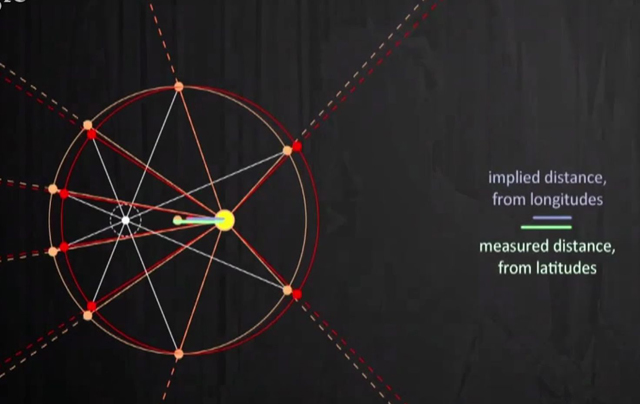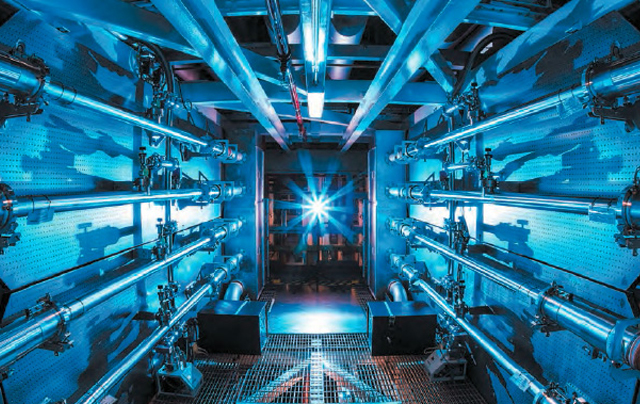The Extraterrestrial Imperative
Mankind’s expansion into space is an imperative.
In a very direct way, the survival of advanced human civilization on this planet will depend upon mankind’s ability to defend against threats from space. The inner Solar System is filled with millions of near-Earth asteroids, of which we have located less than 1%. Long-period comets come into the Earth’s neighborhood from regions far outside our best detection capabilities. The Sun regularly releases explosive outbursts of high-energy radiation which can devastate large sections of our electrical and satellite infrastructure in a single blast. The Sun also goes through longer-term fluctuations, changing the Earth’s climate. On a larger and longer-term scale we must better understand how our Solar System’s travel through the Galaxy affects processes on Earth.
These realities force mankind to realize that he must rise to the level of the Solar System and the Galaxy.
On a more fundamental level, this is necessitated by mankind’s nature as a creative species. Aside from these more practical considerations of defense, mankind is characterized by continual progress to higher levels of existence in the Universe. Failing to continue to pursue new creative levels of development is a negation of mankind’s very nature, leading to cultural and moral degeneration. Mankind must continue to re-define the nature of his existence by recreating his own relationship with the Universe on more fundamental and deeper levels. Today, this takes us to the Solar System, and beyond, into the Galaxy.
Some of this may involve the travel of human beings to other regions in the Solar System, but the principle is much more fundamental than where we do or do not send people’s physical bodies. The continued development of remote-operated satellites and robots will be an improving and critical aspect of expanding mankind’s active presence throughout space. However, this too is just a shadow. As Johannes Kepler demonstrated with his discovery of the principle of gravitation, the creative discoveries uniquely generated by the human mind are the substance of mankind’s progress in the Universe.
Target Moon
As recognized by the governments of China and Russia, as well as many leading thinkers in the United States, the development of the Moon is a critical platform for mankind’s development of the Solar System more broadly. This includes the utilization of resources from the Moon for use on the Moon, in space more generally, and, in certain cases, even back on Earth, as with the superior fusion fuel helium-3, which is abundant on the Moon but nearly absent from the Earth. The Moon also provides unique scientific opportunities, including the ability to develop new types of radio observatories which cannot be located on Earth or in Earth orbit.
The importance of the Moon as the next step to expand mankind’s development of the Solar System was recently expressed by Vladimir Solntsev, the President of Russia’s leading space company, Rocket and Space Corporation Energia. Speaking with Executive Intelligence Review in October 2015, Solntsev said:
"We don’t want to just fly to the Moon, land on it, then put a stick on it, and then go back … We will try to organize an actual operation on the lunar surface. We should use our natural satellite as much as possible. We are ready to cooperate with any country, if it coincides with our goals, tasks, and perspective. It does not depend on their nationality."
And it is no secret that China is making the most rapid advances in pursuit of these goals.
China’s National Space Administration (CNSA) has been carrying out a well-planned, increasingly challenging program of robotic lunar exploration since 2007. This has included orbiters, and the celebrated Yutu rover on the 2013 Chang’e-3 soft landing mission. The next step will be a lunar soil sample return mission in 2017. In 2020, China plans a “first” in lunar exploration— landing a craft on the far side of the Moon.
These initial lunar exploration programs—along with China’s development of manned space capabilities, a family of launch vehicles, and other supporting infrastructure—is laying a solid foundation for that nation’s leadership in the development of the Moon. Perhaps most interesting, Chinese scientists have been in the forefront of proposing the mining of helium-3 on the Moon, which fuel could play a leading role in China’s future fusion industry.
With fusion power for space travel and the Moon as our first outpost, mankind will be situated to begin our control and development of the inner Solar System, looking to our changing position in the Galaxy.










